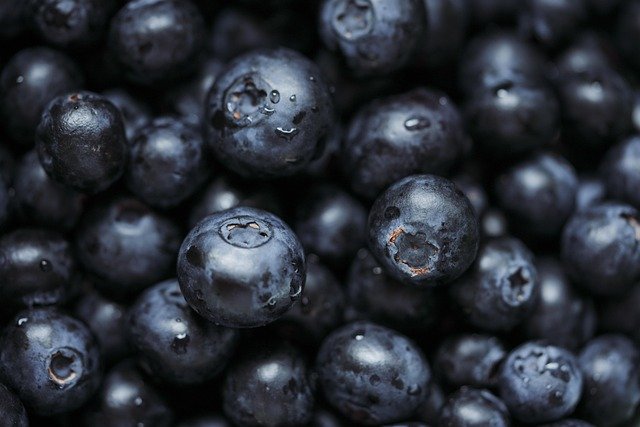Fruits That Boost Eye Health: Nature's Vision Enhancers
Your eyes work tirelessly every day, processing light and images to help you navigate the world. Maintaining optimal eye health requires more than routine checkups—it demands proper nutrition. Certain fruits contain essential vitamins, minerals, and antioxidants that support vision and protect against age-related eye conditions. From vibrant berries to tropical delights, nature offers a colorful array of options that can contribute to healthier eyes and clearer sight throughout your lifetime.

Good vision depends on a complex network of cells, nerves, and nutrients working together. While genetics and lifestyle play significant roles, dietary choices directly influence eye health. Fruits rich in specific vitamins and compounds can help reduce oxidative stress, strengthen blood vessels in the eyes, and support the retina’s delicate structures. Understanding which fruits offer the greatest benefits allows you to make informed choices about your daily nutrition.
The Power of Antioxidants in Fruits
Antioxidants are molecules that neutralize free radicals—unstable compounds that damage cells throughout the body, including those in your eyes. The retina, which converts light into neural signals, is particularly vulnerable to oxidative stress due to its high metabolic activity and exposure to light. Fruits containing antioxidants like lutein, zeaxanthin, vitamin C, and vitamin E help protect eye tissues from this damage. These compounds work by absorbing harmful blue light, reducing inflammation, and maintaining the integrity of cell membranes. Regular consumption of antioxidant-rich fruits has been associated with lower risks of cataracts and age-related macular degeneration, two leading causes of vision loss in older adults. By incorporating a variety of colorful fruits into your diet, you provide your eyes with a steady supply of protective compounds that support long-term visual health.
Blueberries: The Tiny Vision Protectors
Blueberries stand out as exceptional allies for eye health due to their high concentration of anthocyanins, powerful antioxidants that give these berries their deep blue color. These compounds improve blood circulation to the tiny vessels that nourish the retina, ensuring adequate oxygen and nutrient delivery. Research suggests that regular blueberry consumption may enhance night vision and reduce eye fatigue, particularly beneficial for people who spend extended periods looking at screens. The vitamin C content in blueberries further supports collagen production in the cornea and helps maintain the structural integrity of blood vessels in the eyes. Beyond their antioxidant properties, blueberries contain fiber and other nutrients that contribute to overall health, creating a foundation for better vision. Whether fresh, frozen, or dried, these small fruits pack a substantial nutritional punch that makes them easy to include in daily meals and snacks.
Citrus Fruits: A Burst of Vitamin C
Oranges, grapefruits, lemons, and other citrus fruits are renowned for their vitamin C content, a nutrient essential for maintaining healthy blood vessels in the eyes. Vitamin C acts as a powerful antioxidant that protects against oxidative damage while supporting the production of collagen, a protein that provides structure to the cornea and sclera. Studies have linked adequate vitamin C intake with reduced risk of cataract formation and slower progression of age-related macular degeneration. The bioflavonoids found in citrus fruits work synergistically with vitamin C to strengthen capillaries and improve blood flow to ocular tissues. Regular consumption of citrus fruits also supports the immune system and overall cellular health, creating conditions that benefit not just your eyes but your entire body. A single orange or half a grapefruit can provide a significant portion of your daily vitamin C needs, making these fruits both convenient and effective for supporting vision health.
Kiwi: The Green Guardian
Kiwi fruit deserves special recognition for its impressive nutritional profile that directly benefits eye health. Each kiwi contains substantial amounts of vitamin C, vitamin E, and lutein—three nutrients that work together to protect the eyes from oxidative stress and harmful light exposure. Lutein, a carotenoid pigment, accumulates in the macula, the central part of the retina responsible for sharp, detailed vision. This compound acts as a natural filter for blue light, reducing the risk of light-induced damage to photoreceptor cells. The vitamin E in kiwi complements these effects by protecting cell membranes from lipid peroxidation, a process that can impair cellular function. Kiwi also provides copper and other trace minerals that support various enzymatic processes involved in maintaining eye health. The fruit’s unique combination of nutrients makes it particularly valuable for people concerned about age-related vision changes or those seeking to optimize their eye health through dietary choices.
Beyond blueberries, citrus fruits, and kiwi, numerous other fruits contribute to eye health in meaningful ways. Mangoes provide vitamin A, essential for proper retinal function and night vision. Papayas offer a combination of vitamins C, E, and carotenoids that protect against oxidative damage. Strawberries deliver anthocyanins and vitamin C, while avocados provide lutein, zeaxanthin, and healthy fats that improve nutrient absorption. Apricots contain beta-carotene, which the body converts to vitamin A. Creating a diverse fruit intake ensures you receive a broad spectrum of protective compounds that work together to support various aspects of eye health.
Incorporating eye-healthy fruits into your daily routine requires minimal effort but offers substantial benefits. Start your morning with a fruit smoothie combining blueberries, kiwi, and citrus juice. Add sliced strawberries or mango to your breakfast cereal or yogurt. Keep oranges and apples readily available for convenient snacks throughout the day. Create colorful fruit salads that combine multiple varieties, maximizing the range of nutrients you consume. When possible, choose fresh, whole fruits over juices to benefit from the fiber content and avoid added sugars. Frozen fruits retain most of their nutritional value and offer convenience for smoothies and cooking. By making fruits a consistent part of your eating pattern, you provide your eyes with ongoing nutritional support that complements other healthy lifestyle practices like regular exercise, adequate sleep, and routine eye examinations.
Maintaining healthy vision throughout life requires a multifaceted approach that includes proper nutrition, regular professional care, and protective measures against environmental hazards. While fruits alone cannot reverse existing eye conditions or guarantee perfect vision, they provide essential nutrients that support the complex biological processes underlying sight. The antioxidants, vitamins, and minerals found in colorful fruits work together to protect delicate eye tissues, maintain proper blood flow, and reduce the risk of age-related vision problems. By understanding which fruits offer the greatest benefits and incorporating them consistently into your diet, you take proactive steps toward preserving your vision and supporting overall eye health for years to come.




